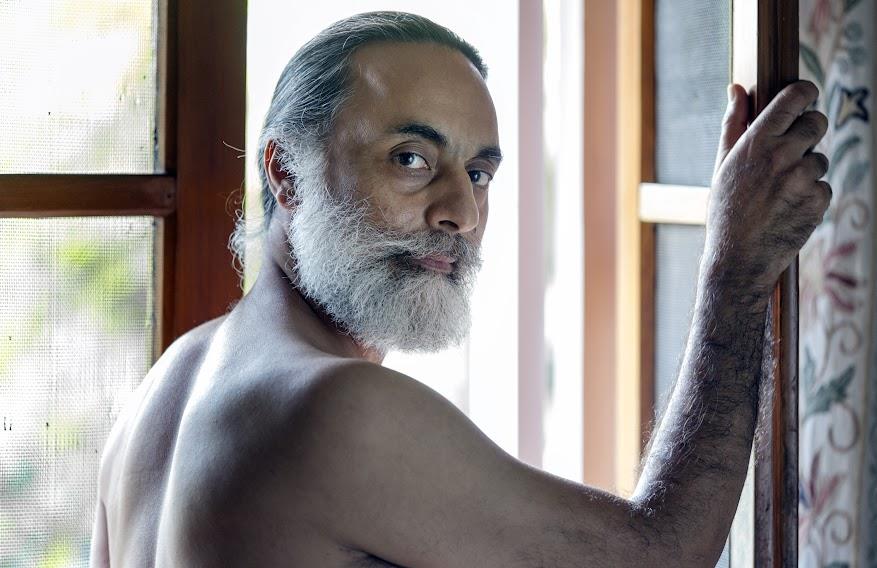
'Tanashah Is Symbolic Of Our Times, Art Can't Be Apolitical': Dancer Navtej Johar
As dancer, choreographer and yoga practitioner Navtej Johar gets to set to stage his latest product 'Tanashah', a solo performance based on Bhagat Singh's jail diaries in Chandigarh on Saturday, he tells IANS, "Art is an expression and intervention, how can it be apolitical? The artist always takes a position, even if it is that of a conformist. When you go on stage, you are sharing what you see all around, and within. No matter how much you dismantle everything, touch on the surface, or reach the depths, there is always a shake-up," says this Sangeet Natak Akademi award-winning artist.
'Tanashah', focussing on Bhagat Singh's essay, 'Why I am an Atheist' examines the resolve of a young man to walk to the gallows with searing clarity, un-sublimated by religious doctrine or idealist philosophy. The dancer had paused his Bharatanatyam performances around 2013-2014 as the performer in him was looking for something 'more', and that is when he started reading Bhagat Singh's diaries.
"I could identify with him in multiple ways -- he came from my part of the world, a Sikh from a religious family, a believer as a child, and slowly turned into an atheist. It resonated with my own personal journey, my politics, sentiments. Our stories intertwined at many points. Also, in the last few years, he has been proclaimed by the Hindu right. But he was a communist and I wanted to set the record straight. For me, he's a poet, the way he writes and thinks, and then a revolutionary. I needed theatre as a medium for this, thus this solo performance," says Johar, who trained at Kalashetra and later studied at the Department of Performance Studies, New York University.
He adds that over the past few years, most classical arts have become nationalist and conformist, and seem to be contributing to making a particular image of India.
"And that is not art to me as it robs the purpose of the same. Art must be immersive. If you are holding that cross of the idea of India, then you need to drop it before making art."
In fact, Johar started out with theatre during his college days but moved away from it as he found it to be too verbose. However, he wanted a medium that was appropriate to convey what he wanted to, thus theatre.
"Also, now I have a body that knows how to handle the gaps. The text too has gaps. My process was to first memorise it and combine it with imagery and sounds. It was like making a collage of texts, moments, sounds and images that never ends and one keeps juggling."
Known for his innovations, improvisations and experiments in dance and yoga, the dancer who has developed a unique style, a synthesis of dance, yoga and somatics, admits that sometimes the purists do get disappointed.
"But that is fair, after all, they have invested so much in you and expect the legacy to be carried forward. I also feel that I have gotten away with a lot of freedom -- being a 'nice boy' helps. So be it yoga or dance, I do take licenses, but respectfully. I have not really experienced the brunt of doing things differently, and when I go back to the same places, my work gets accepted wholeheartedly. By the way, if I had taken to heart all the criticism, I would not have been a dancer in the first place, and we would not be talking."
A social activist, in 2016, Johar and five others, belonging to sexual and gender minority communities, filed a writ petition in the Supreme Court challenging Section 377 of the Indian Penal Code. This resulted in the landmark 2018 judgment in Navtej Johar vs Union of India in which the SC unanimously declared the law unconstitutional "in so far as it criminalises consensual sexual conduct between adults of the same sex".
Asked about the recent SC judgement where it has unanimously ruled against legalising same-sex marriage, he declined to comment.
Talk to him about what keeps him fascinated with Bharatnatyam even after so many decades, and this recipient of the Charles Wallace Fellowship asserts that 'abhinaya' has been India's gift to the world and there can be nothing more beautiful.
"The possibility of delving into something that is full of imagery and to play with it musically...You need to be political for something like this. You need to be bold and transgressive for that, after all, we are talking about the anxieties of intimacy as well. And that is what dance is about."
--IANS
sukant/khz

Legal Disclaimer:
MENAFN provides the
information “as is” without warranty of any kind. We do not accept
any responsibility or liability for the accuracy, content, images,
videos, licenses, completeness, legality, or reliability of the information
contained in this article. If you have any complaints or copyright
issues related to this article, kindly contact the provider above.


















Comments
No comment